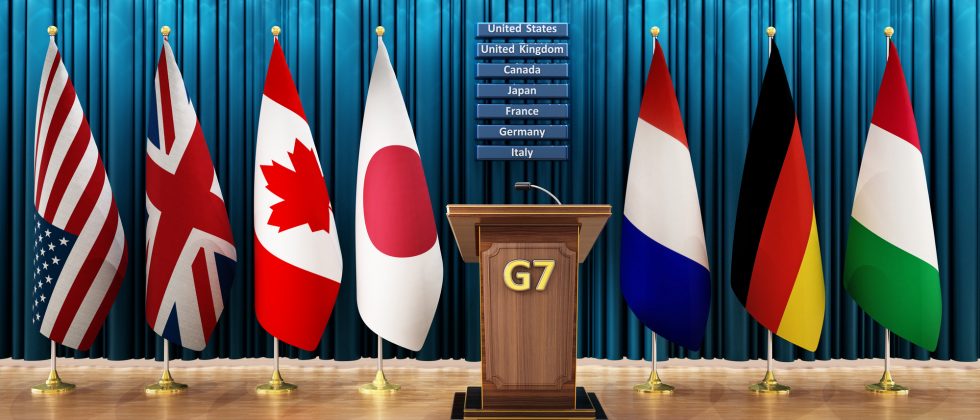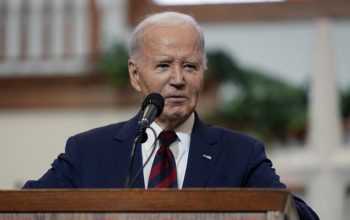news
“The G-7 Summit: Escalating Towards a New Cold War?”, an article by Dr. Leonel Fernández
May 29, 2023
Among the various issues recently addressed at the G-7 summit in Hiroshima, two stand out for their particular nature: Russia’s war in Ukraine and the current geopolitical, trade and technological tensions with China.
The magnitude of these conflicts is such that some international analyst’s belief that humanity is experiencing a new Cold War period.
The reason for this is that since the military occupation of Ukraine by Russia – an event which began in February of last year – both the United States and the European Union have adopted a series of sanctions against the Eurasian nation which has weakened it at the economic, political and military levels.
Over time, the Western nations have stepped up their involvement in the war by channeling billions of dollars in economic aid to the war-torn nation, and providing military equipment to the Ukrainian armed forces.
Before the G-7 Summit, the key topic on the agenda was whether or not the Western nations should provide the Ukranians with F16 aircraft, anti-ballistic missiles and other sophisticated weapons.
Eventually, these key issues were resolved. First, with Volodymir Zelensky’s visit to the most important European and Middle Eastern capitals. Soon after, through his participation at the G-7 Summit where he received unanimous support from the United States, the United Kingdom, France, Germany, Japan, Canada, and Italy.
With all the commitments undertaken – in favor of Ukraine by the main Western democracies – the underlying objective was to conquer what President Biden has called “the strategic defeat of Russia in Ukraine.”
Now, what exactly does this mean? Does it mean that Ukraine, with the help of the West, will be able to militarily defeat Russia? That Russia will have to abandon all the territories occupied since 2014, including the Crimean Peninsula and the Sevastopol Naval Base?
And, what would happen if after this proclamation, the exact opposite occurred? That is, that Russia refuses to cede these territories? Would that mean, then, that Russia beat the entire Western world? If so, how does one go around interpreting this situation?
The Dragon’s Reaction
Parallel to the G-7 meeting, China organized its own summit. In a symbolic gesture, she rolled out the red carpet in the city of Xi’an – a key city situated along the ancient Silk Road – to five Central Asian countries, all former republics of the Soviet Union.
With the presence of the leaders of Kazakhstan, Kyrgyzstan, Tajikistan, Turkmenistan and Uzbekistan, China wanted to send the message that there is a different international order from the one promoted by the Western world.
It was in Kazakhstan where, in 2013, Xi Jinping launched his Belt and Road Initiative, a trillion-dollar investment plan for the construction of infrastructure projects in the developing countries situated near the Asian giant.
However, the United States government has maintained that China, under the Xi Jinping Administration, has set itself the goal of reforming the international system, led by the West, to build an alternative system, more in tune to its national interests.
Against this criterion, China has maintained those Western nations – headed by the United States – have implemented the containment, encirclement and general repression of China provoking unprecedented and severe challenges to that country´s development.
In principle, the United States suggested raising tariffs on the imports of products made in China and going to the North American market, as a way of balancing trade between the two nations.
Similarly, it also demanded that the Chinese government not manipulate its monetary policy in order to make its products cheaper and create unfair competition with the United States. But the situation has become more tense, ever since the U.S. government blocked Chinese technological companies, such as Huawei, as well as suspended the sale of advanced semiconductors and equipment needed to manufacture chips.
On the other hand, the People’s Republic of China has sanctioned North American companies by launching raids, imposing million-dollar fines, as well as other restrictions of a commercial nature.
Tensions also escalated after the United States shot down a Chinese balloon flying over North American airspace without authorization. Also, for China’s claims to Taiwan and its expansion throughout the South China Sea, as well as for building the world’s largest navy, which currently roams freely through the Indo-Pacific region.
Peace Diplomacy
The final press release issued by the G-7 Summit refers to coercive economic practices and China´s abuse of a dominant economic position vis-à-vis debtors or other countries, with the alleged intention of diverting their free political will.
However, the United States´ initial conception to eliminate dependence on China´s manufacturing production by dismantling it, was nuanced when the positions of the more moderate European allies were undertaken. They favored a reduction of the risk factors in their trade relations with China.
This overall situation could be somewhat predicted after U.S. Treasury Secretary Janet Yellen delivered two keynote speeches where she referred to the need for a healthy economic relationship with China…”one that nurtures growth and innovation in both countries.”
In response to the animosity created by Nancy Pelosi’s visit to Taiwan, channels of communication began to open up at the highest level, specifically with Secretary of State Antony Blinken and Secretary of Homeland Security Jake Sullivan. All of these changes suggest that instead of a new Cold War a more relaxed environment will surface. In other words, as in another period, these new positions could be called policies of relaxation of tensions.
The fact that the communiqué itself appealed to the Charter of the United Nations for the search, through diplomatic channels, for a just peace for Ukraine, are encouraging signs that despite the escalation in rhetoric and in warmongering actions by the two power blocs, the language of peace is beginning to make its way and find the space it needs.
I hope so.





